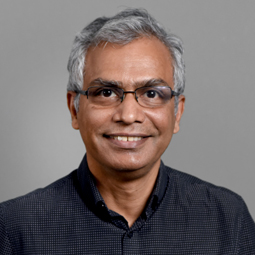
1983/B.Tech/EE Professor, Arizona State University USA
Professor Subbarao Kambhampati is currently a professor in the Department of Computer Science and Engineering, School of Computing & AI, Arizona State University, Tempe. He obtained his B. Tech in Electrical Engineering and Electronics from IIT Madras in 1983. He finished his master’s in computer science at the University of Maryland, College Park, USA in 1985. He completed his Ph.D. in 1989 at the same University.
At Arizona State University, Kambhampati teaches and conducts research in Artificial Intelligence. His research group studies fundamental problems in planning and decision making, motivated in particular by the challenges of human-aware AI systems. Kambhampati has mentored scores of masters and PhD students who are in influential positions across the world.
Kambhampati is an elected fellow of the Association for the Advancement of Artificial Intelligence, the American Association for the Advancement of Science, and the Association for Computing machinery, and was an NSF Young Investigator. He is also an award-winning teacher, and the recipient of the university-wide last lecture award.
Kambhampati served as the president of the Association for the Advancement of Artificial Intelligence, was a trustee of the International Joint Conference on Artificial Intelligence and is the chair of AAAS Section T (Information, Communication and Computation). He was also a founding board member of the Partnership on AI.
Kambhampati is an acknowledged thought leader on AI technology and its societal impacts. He spoke at multiple high-profile governmental forums, including the White House, and has been quoted in prominent national and international media including The New York Times, National Public Radio, The New Yorker, The Guardian, The Atlantic, and Netflix.
For his immense contributions to the field of AI and Computer Science Engineering, IIT Madras and its alumni are proud to bestow the Distinguished Alumni Award for the year 2022 upon Prof. Subbarao Kambhampati.